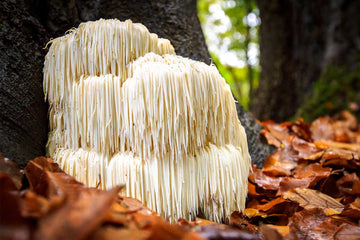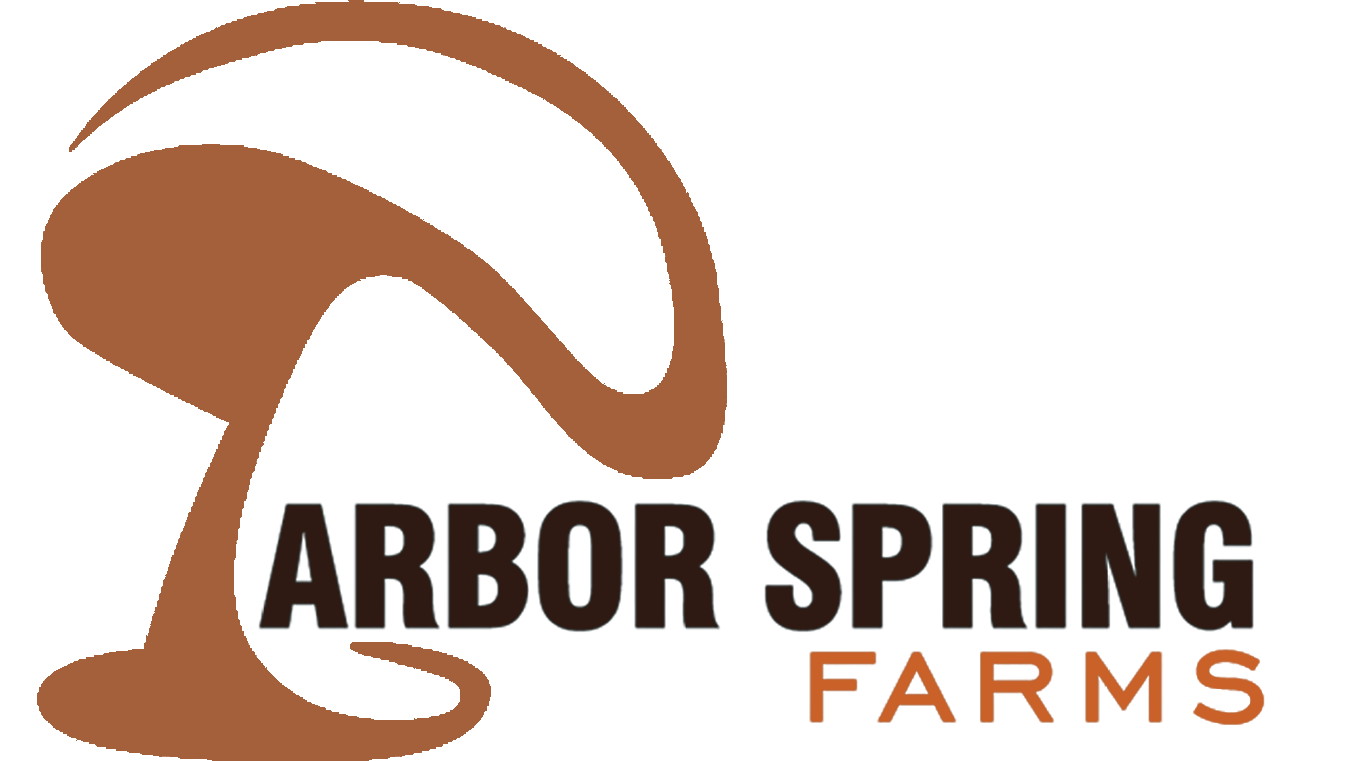Ross Devereaux, Founder & Grower
The Beginning: A Mushroom Farm is Born
I (Ross) started building out the mushroom farm in 2019 with my wife, son, and longtime business partner Dave. I have owned the property since 2000 and over the years ran several businesses here.
An Unexpected Call from an Old Friend
In the summer of 2018, an old friend that I hadn’t heard from in almost 30 years contacted me. Over the next 6 months, we talked frequently about his desire to start a mushroom farm…in the basement of his home, of all places. Sounded crazy to me.
In early 2019, this friend called to tell me that he had just been fired from his job and sought my advice about what he should do. It only took me a second to say that he should look at this as a sign from God to finally start his mushroom farm. Before long, my son and I were at his house helping him build his farm.
A Fateful Decision to Convert Our Property
Just a few months later, in the summer of 2019, we moved the 3 businesses we were running at our now farm property to a new location with more office space, and I was left wondering what I should do with this property. And as if it was meant to be, my old friend called and insisted that I had to convert my property into a mushroom farm.
He had started growing at his new farm a month earlier, and demand for mushrooms from the restaurants in his area already exceeded what he could grow. Of course, being gifted—or maybe cursed—with an entrepreneurial spirit, I immediately sat down with my family and friends to discuss the matter. Today, I don’t recall anyone asking me if I had lost my mind, and with everyone in agreement, we moved forward.
We figured this would be easy given the fact that we had a crazy amount of restaurants in our area, being only a short distance from Lansing, Ann Arbor, and Detroit.
The DIY Buildout: Creativity on a Budget
It took about 6 months to do the buildout. Changing a space that used to have a dozen employees at desks or cubicles into an indoor farm…now as I write this, I wonder if perhaps my mind was a little lost.
Since we didn’t have much capital, we figured out how to make what we needed with what we could scrounge up. For example:
- We made our first sterilization box out of 2 sliding glass doors, a storm door, and an existing wall.
- We generated steam from a tub of water heated with an element normally used in an electric water heater.
Nights and weekends for 6 months was a lot of work, but it was fun. Looking back to those days when we were red-neck designing everything we needed forced us to learn—and I mean really learn—all of the successful principles of mushroom farming.
Our First Harvest & The Arrival of COVID
It was May of 2020 when we had our first harvest of blue oyster mushrooms. I can still remember that day—the blue color was so amazing, and I was thinking, We grew this, and someone is going to eat it. Having only ever grown grass in my yard prior to that, I will admit I was really proud of what we had accomplished.
For those of you who are good with dates and timelines, you already know what we were faced with—and if you don’t, think about it for a minute. Go ahead…we’ll wait…
Yup, you got it…COVID.
We had just invested a lot of time and a bunch of money to start a business whose likely customers were mostly all closed thanks to our “go along” governor here in Michigan. Through a lot of time and effort, we did manage to find some restaurants that were not closed, along with some grocery stores that wanted our mushrooms.
Rebounding & The "Chef Shuffle" Challenge
Things got better when the restaurants started opening again, and we started growing more species and higher quantities. Dave was doing most of our sales back then, and he would come back with some crazy stories about the chefs and cooks he met.
One of the better stories involved the chefs at Oakland Hills Country Club (if you’re a golf fan, you’re already familiar with Oakland Hills in Michigan). The chefs were so excited when they opened the sample box Dave brought them that they each got their phones out and started taking pictures of each other holding different clusters of our mushrooms.
As much as we were having fun growing this business, we had to learn some tough lessons along the way about sustaining it. One of the biggest lessons was that chefs changed restaurants like my mom changed locations to visit on vacation.
If you’re familiar with higher-class restaurants, you’ll know that the chef typically decides the menu, and the restaurant has no loyalty to any vendor. We soon found out that the new chef may not even like mushrooms—or has a relationship with another mushroom farm—so one week you’re selling 100 pounds or more to them, and the next week, zero.
Our farm delivers only fresh mushrooms, which means that the mushrooms we delivered were either harvested:
- The same day we delivered them,
- The day before,
- Or sometimes 2 days prior (depending on the species).
Pivoting to Functional Health & Mushroom Coffee
After a few years of this, we were getting tired of the ups and downs of the constant “chef shuffle,” and we started looking at different ideas of what we could do with our farm that would connect us with customers who would:
- Benefit from our mushrooms,
- Appreciate our efforts.
An appreciation that we would hope would turn into continuous sales for the farm.
This was the summer of 2023 when we started researching the medical benefits of the different mushrooms we were growing. We first looked for colleges that would buy our mushrooms for research they were doing, but we didn’t find any that would want anywhere near as much as we were growing—or, more importantly, could grow.
Our research ultimately brought us to the functional health and supplements market.
- Coffee…bingo!
- Straight powders…another bingo!
- And the most popular mushroom appeared to be Lion’s Mane…now we’ve hit the trifecta!!!
You see, it hadn’t been that long before that I woke up one morning saying, “I wish we only grew Lion’s Mane.” Lion’s Mane grows quickly, and out of all the species we grow, it is the least susceptible to disease.
The Mushroom Coffee Breakthrough
Over the course of the next year, we:
- Purchased a commercial-size freeze dryer,
- Started making powders that sold well at farmers’ markets,
- Explored coffee next.
We tried a few different mushroom coffees and were not fans of any that we tried. We talked to friends, family, and customers of our other businesses and found quite a few who had purchased mushroom coffee—each hated it, and each offered me the unused packages they had in their pantries.
There was one thing all of the coffees we tried (and the people we talked to) had in common: each coffee had multiple mushroom species in it. At the same time, we can’t rule out the possibility that the companies who made these products used really bad coffee, which could be contributing to the bad taste.
Then we brewed a pot of our own with just our Lion’s Mane powder and coffee in it. To our initial surprise, we couldn’t taste the Lion’s Mane.
Our next surprise was gradual. Over the following days, as we drank our Lion’s Mane coffee each morning, we could tell that:
- We were more focused,
- We were less distracted,
- We were getting more done.
Since this first week, we have experimented with different quantities of Lion’s Mane in our coffee. As we expected, with more Lion’s Mane, we realized more focus. What we didn’t expect was the fact that we still couldn’t taste the Lion’s Mane.
Wondering if we had just become so used to having the Lion’s Mane in our coffee as the reason why we couldn’t taste it, we decided to do a blind taste test with our friends and family.
Our blind taste test consisted of 4 pots of coffee:
- One pot had no Lion’s Mane,
- One pot had the usual blend of Lion’s Mane,
- One pot had 1.5x the usual amount,
- The last pot had 2x the usual amount of Lion’s Mane.
None of our participants had ever drunk mushroom coffee, and no one was allowed to add cream or sugar to their cups.
Confirmed! Not a single person could pick out the cup that had no Lion’s Mane in it. We weren’t playing a shell game, and there was no prize for picking it out. We asked each one for their honest answer, and none of them could tell the difference between the 4 cups.
Spring 2024: Refining Our Vision
It is now the spring of 2024, and realizing that we were onto something good, we started researching:
- The best methods for making Lion’s Mane powders,
- The best available coffee roasters,
- The best way to package our products,
- And putting the best team together to make our products.
The initial products we decided to go to market with were:
- Powders,
- Tinctures,
- Coffee.
The coffee we decided has to be in K-Cups, since K-Cups represent the lion’s share (no pun intended) of the coffee sold these days.
Our Mission & Core Principles
Deciding on our company mission and goals came next. Fortunately, we were all on the same page with these topics, and here are the key points:
Traceability
If a customer is going to put any of our products in their mouth and swallow it, we want to “see”—not just know—where everything came from. This starts with using our own organic mushrooms, grown in Michigan.
We didn’t know until we started wanting to produce these products that there are companies out there that will do everything for you if you wanted to sell your own mushroom products. These companies will:
- Purchase the raw materials,
- Process them,
- Package them,
- And place them online to be sold.
And the person selling these products never saw or touched any of the ingredients. So absolutely no traceability with them.
Control Production
If a customer is going to put any of our products in their mouth and swallow it, we want to “see”—not just know—how it was processed. This step also falls under “traceability.”
Product Handling
If a customer is going to put any of our products in their mouth and swallow it, we want to “see”—not just know—how the mushrooms were handled from the moment they were harvested until they are processed.
With us:
- Our farm is 3 miles from our production facility.
- Within hours of being harvested, the mushrooms are delivered to our production facility and are processed immediately.
With other companies, who knows what you’re getting? We have read stories on some of our competitors' websites where they talk about their mushrooms being grown hundreds of miles away from the production facility. We wonder:
- How many days have passed since harvest until the mushroom gets processed into a powder?
- How did they care for them during the trip?
The powder then either boards a ship or a plane to travel to the US, where it is converted into its final packaged form. Good luck knowing how old the mushrooms are that you’re now consuming.
Born-On-Date
Our products will have a born-on date, so you will know—within a few days—the exact age of the mushrooms you’re about to consume.
Efficacy
We absolutely want to have the highest quality with the highest efficacy available in the US.
Our Ultimate Goal
To become the gold standard in each of the areas we will offer products.
By following our mission and the goals we have set, we are confident that our customers will benefit from using our products so much that they will share their experiences with their friends and family.
Education Blog
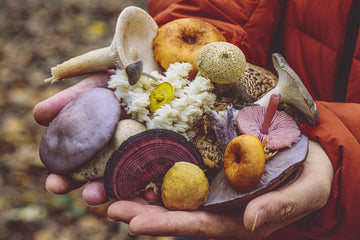
Daily Ritual for Focus and Energy
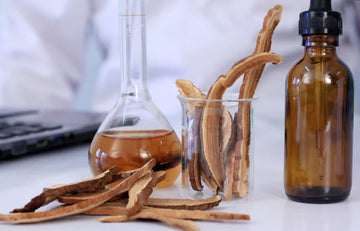
How Dual Extraction Works
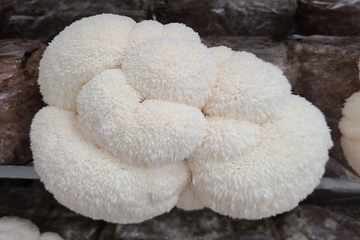
Why Fruiting Body Matters
